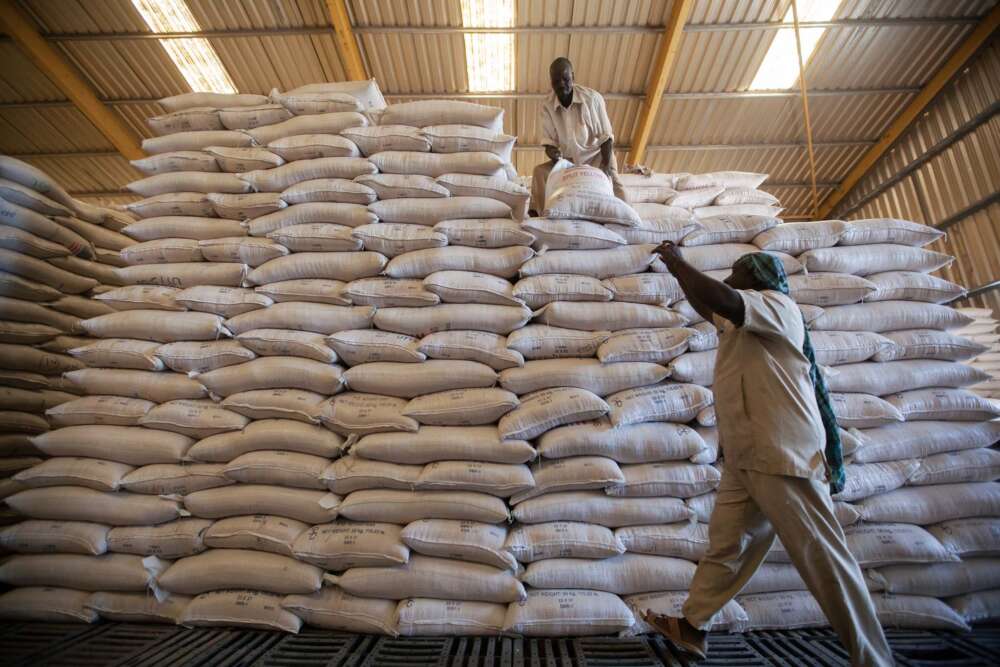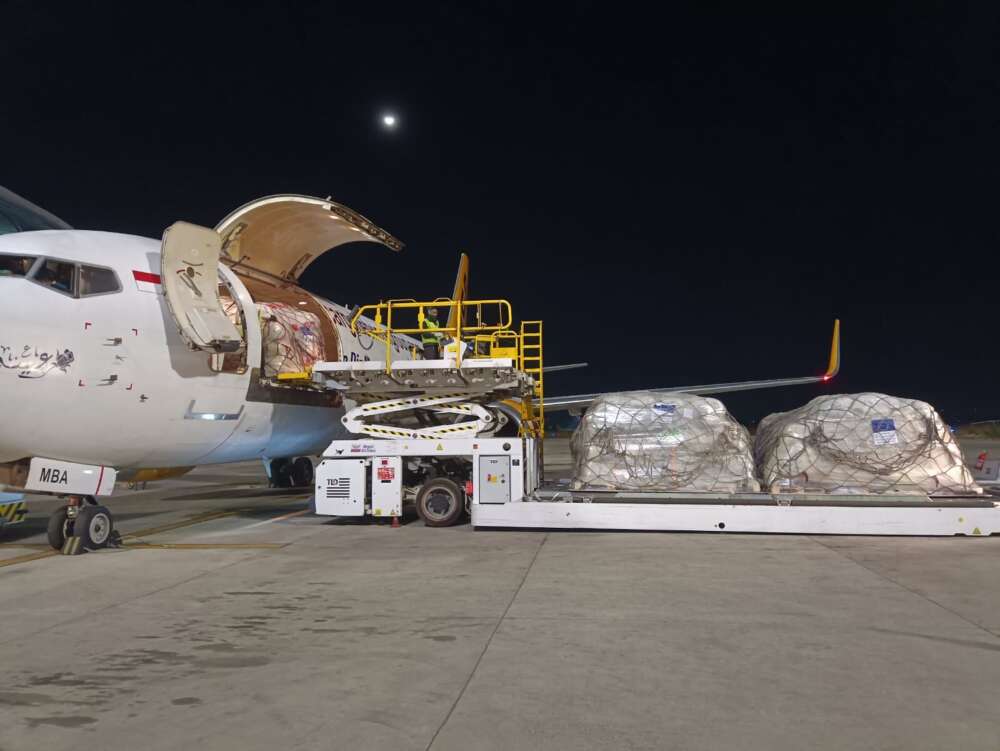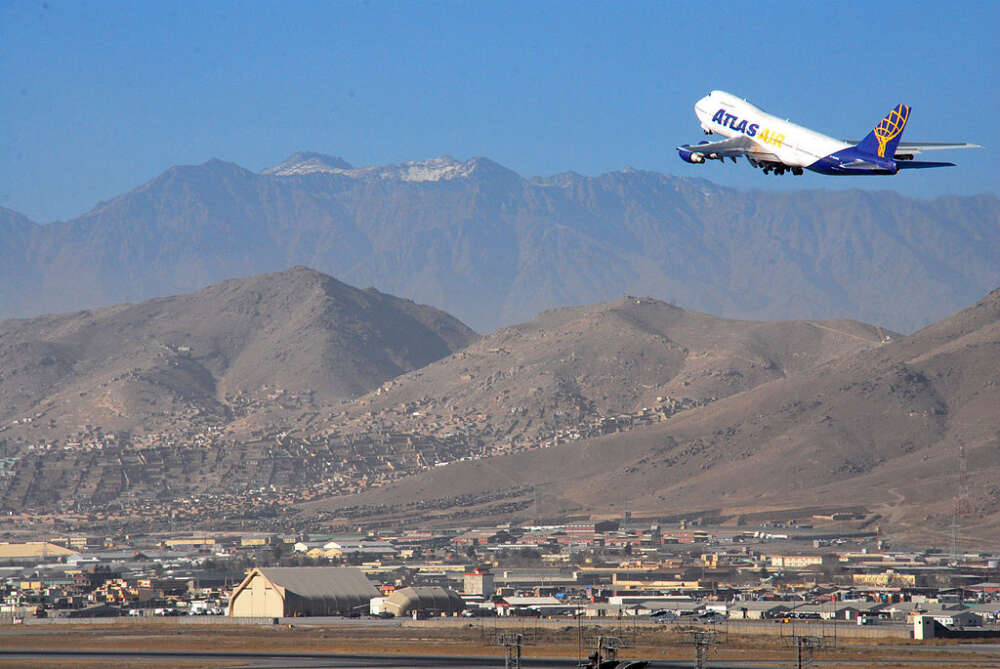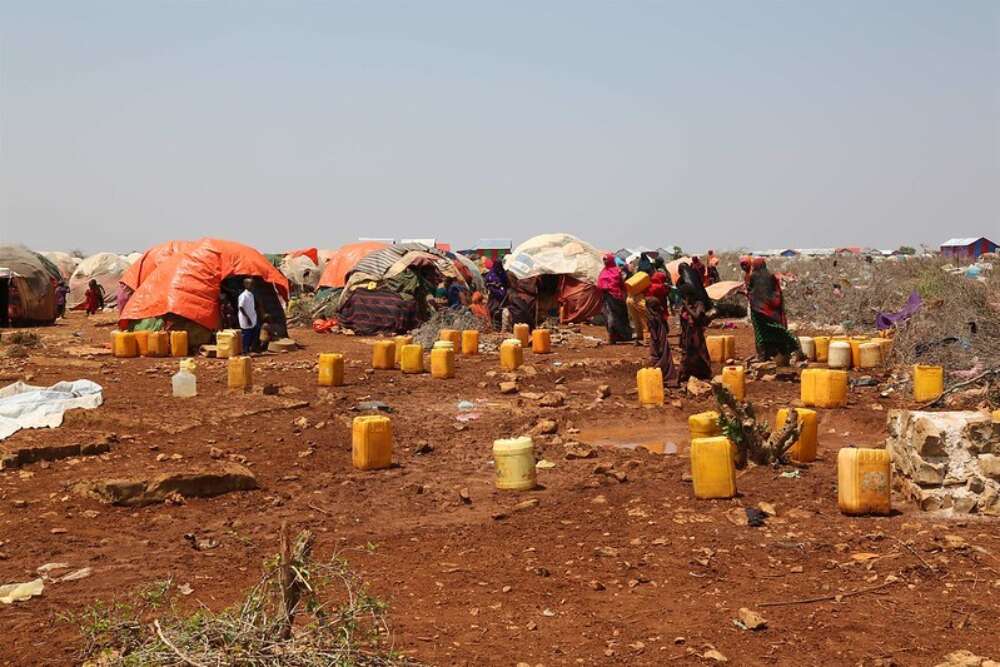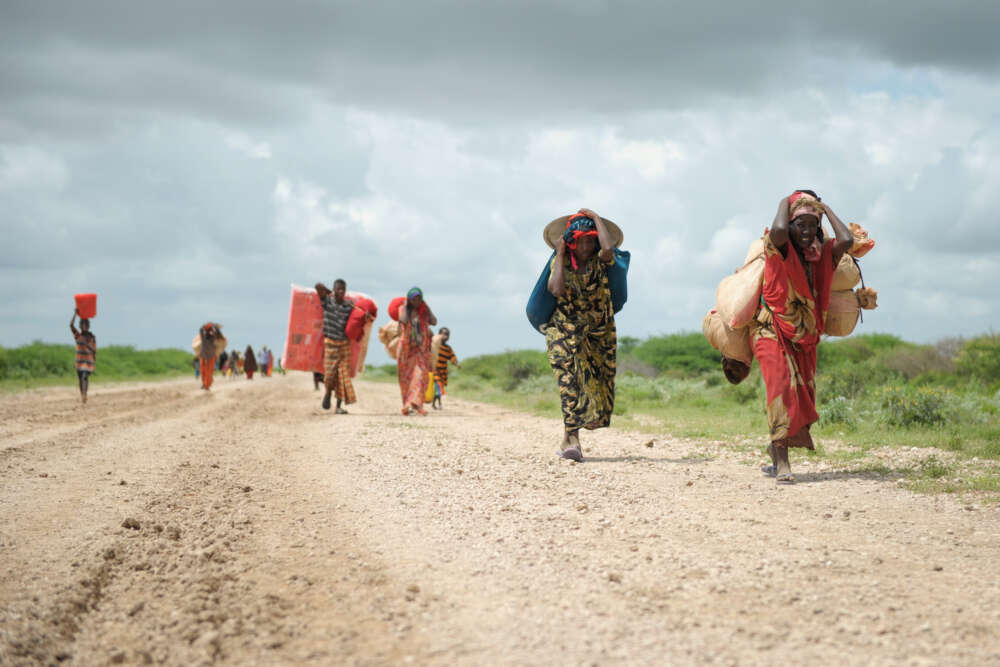Painful Choices: How Humanitarians Can Prioritize in a World of Rising Need
A Conversation Starter for the Climate Emergency
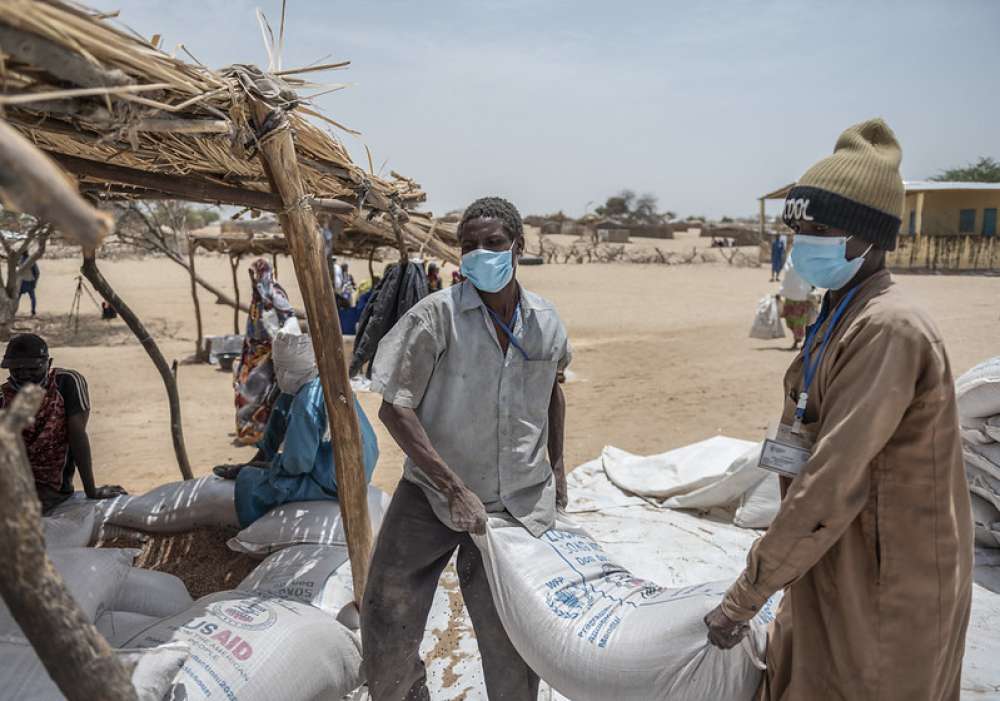
Humanitarian ideals insist that emergency aid should be distributed universally. It is for “everyone, everywhere,” as one slogan of the International Federation of the Red Cross and Red Crescent Societies (IFRC) has it, with targeting carried out on the basis of need. Another tenet of humanitarian action is the principle of impartiality, which specifies further still that when needs are high, priority should be given to “the most urgent cases of distress.”
But what happens if needs are universally high and routinely outstrip aid supplies? If there are billions not millions of urgent cases? Looking back on the last 20 years of aid, Elias Sagmeister is right that humanitarians and their government paymasters have largely kept up with rising needs, greatly expanding and professionalizing humanitarian aid in the process. But reports from the Intergovernmental Panel on Climate Change keep warning of “unprecedented” hazards and impacts in the years ahead. This means we must plan for the unexpected, which may include an exponential rise in needs produced by climate-related disasters in the 2020s and 2030s.
But if future needs prove to be unprecedented, we will not be able to anticipate them using data collected from past disasters, wars and donor contributions. This makes many humanitarians and their donor governments worry about how to prioritize between different needs and different groups of needy people.
The Necessity of Painful Choices
In my research on humanitarian aid in the climate emergency, the challenge of prioritization is routinely expressed with a pained expression. As I heard from IFRC staff in Geneva, “the thing we must address – but are not really talking about yet – is prioritization: choosing who we can help and who we can’t.” Public discussions about the priorities of humanitarian aid will be difficult, even if humanitarians have always prioritized in ways that deliberately count some people into their programs while leaving others out. Now, these discussions will inevitably involve choosing between human lives within as well as between different countries.
Naturally, it feels morally hard to talk easily and openly about such choices. And yet, as the rising number of climate-related disasters increases human suffering around the world in the years to come, humanitarians and donors understand that they will probably need to prioritize even more. A recent post on the International Committee of the Red Cross’s (ICRC) blog gave voice to this dilemma: “as there are never enough resources to address all needs, should we always prioritize the most vulnerable, or should other factors – such as the odds of having a sustainable impact […] – be taken into account?”
So how can humanitarians prioritize reasonably and ethically in a world of rising emergency needs and changing life conditions for billions of people? This essay tries to be a conversation starter, offering two main routes toward prioritization in the face of potentially massive needs.
- First, I emphasize the important principle of shared responsibility between different states and different humanitarian systems in organizing and allocating global aid. In doing so, I recognize that new geopolitics and expanding climate action provide more options for the division of humanitarian labor around the world.
- Secondly, I look at the core demands of humanitarianism’s principle of impartiality and suggest seven criteria for prioritization that can be used to position some needs and some people over others. Some of these criteria breach and extend current understandings of impartiality. Like Andrea Steinke, I think a revision of the principle is required.
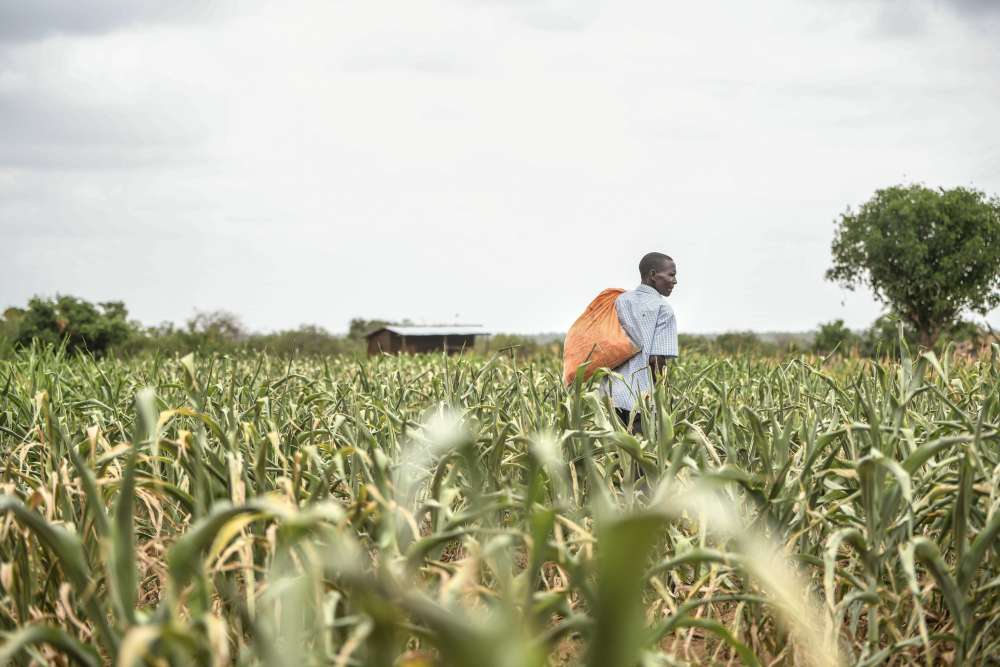
Prioritizing Through Shared Responsibility: Who Should Get Involved?
Henry Shue, the great American philosopher and pioneer of public policy on climate justice, explains that ethical choices in public policy are always constrained by the scale of needs and the limits of our capacity to meet them. As a result, Shue reminds us, “some selection is inevitable” and “a division of moral labour is unavoidable.” Not everything can be done and not everyone can do everything. Humanitarian agencies will always have to prioritize and share the load with others.
Just as importantly, Shue points out that recognizing “a division of responsibility does not presuppose a hierarchy of value” but simply reflects the practical limits of capacity. Just because your agency chooses to do emergency public health does not mean that you place less moral value on food security, climate services like early warning, or the long-term development of nature-based solutions. You do health because it is valuable and needed, and because you are good at doing it.
Equally, the largely Western-funded system of humanitarian aid cannot pay for everything. It also cannot reach into many countries and regions that are under the influence of other major powers or competing ideologies. This does not mean that humanitarians do not care about people in these areas. All suffering is of emotional concern, but not all suffering imposes an obligation to respond, since moral responsibility is limited by practical capacity. Shue’s point is that responsibility for meeting humanitarian needs is never absolute and must always be shared.
On the ground, as humanitarians know well, the responsibility to meet needs is usually shared between foreign, national and local governments; international organizations; and affected communities. Yet it is the former two – governments and aid agencies – that are legally required to meet humanitarian needs, and they are entrusted with resources to do so. Deriving its logic from international humanitarian and human rights law, the Humanitarian Charter makes it clear that governments have the primary responsibility for responding to needs. On paper, the international humanitarian system – represented by aid agencies – exists largely to plug gaps and support governments.
But in reality, international aid organizations are often the main responders and take on a huge amount of responsibility. What is more, they are usually reluctant to leave a country once they have settled into a fundraising routine. Although responsibility sharing as a practice has developed in great detail within the humanitarian system itself – with joint appeals and technical clusters organizing and allocating responsibility between a variety of agencies, technical sectors and geographies of need – its significance as a principle is underappreciated. When facing the question of how to prioritize aid, it is morally and practically important that the responsibility to respond is a shared one.
A System of Systems
Responsibility sharing also takes on new significance in a world that has become much richer, and in which power is more dispersed between East and West, North and South. China, India and other BRICS countries now have significant economic power and so considerable humanitarian capacity and autonomy. Many middle powers like Indonesia and Mexico, and regional organizations like the African Union or ASEAN, would also be able to organize humanitarian response across their regions if they chose to align their tax systems and budgets to do so.
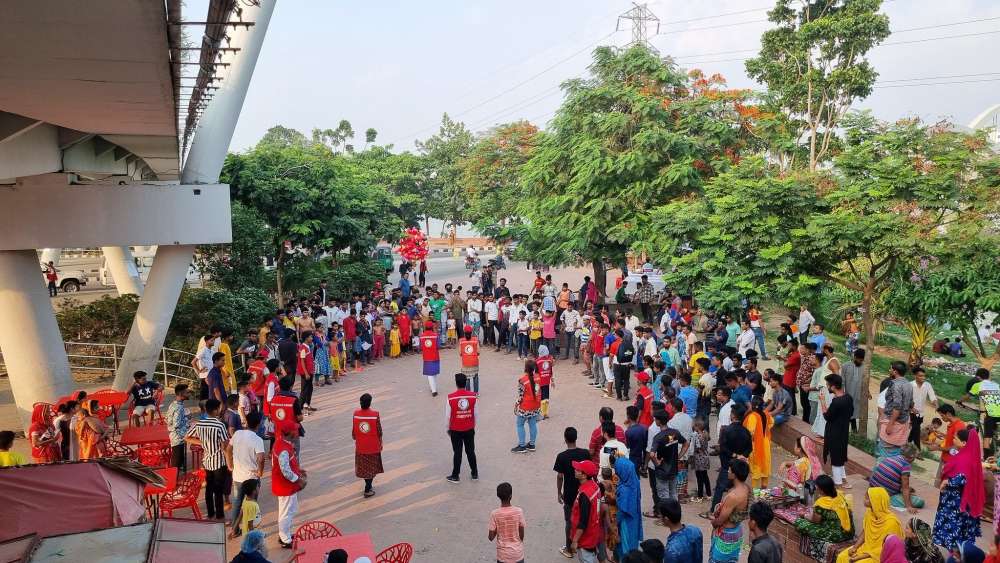
The implication of this is that when people suffer and die in certain places around the world, international humanitarian agencies are not necessarily neglectful in their humanitarian duty – because it may not have been their particular responsibility to prioritize these people. Every humanitarian need is not an equal priority for every humanitarian actor. Responsibility sometimes rightly falls to those who are closer in various ways, have equal or greater capability, and for whom it is easier to act.
Shared responsibility, therefore, becomes an important principle with which to prioritize the distribution of international humanitarian aid in today’s geopolitics. And it does not only apply to powerful states but also extends to powerful financial institutions and development agencies. Recognizing this, an increasing number of humanitarian organizations are now advocating for institutions providing climate finance in particular to “crowd in” (and even outgrow humanitarian actors) in places that are vulnerable to climate risks. New major powers around the world need to join them in doing more, and they must also be transparent about what they are doing so the world can plan emergency response as a system of systems.
Beyond Impartiality: Why We Need New Criteria
Responsibility sharing alone will not solve all the allocation problems of humanitarian aid. In any agreed-upon division of responsibility, there will still be significant challenges of distributive justice for agencies to resolve whenever total needs outstrip resources.
First, there are intra-sectoral resource gaps that prevent us from meeting needs in a particular sector like food security or shelter. Secondly, there are frequent inter-sectoral needs clashes that arise when sectoral needs explicitly compete with one another. For instance, this would be the case if resource limits prevented simultaneous investments in food security and shelter. Thirdly, there are inter-country differences. These are most commonly observed as double standards in resource allocation between “high-profile” and “forgotten” emergencies.
Conventionally, humanitarians navigate such situations using the principle of impartiality – humanitarianism’s second core value after humanity. As the ICRC puts it, this principle insists that humanitarian action make “no discrimination as to nationality, race, religious beliefs, class or political opinion.” Instead, it should endeavor “only to relieve suffering, giving priority to the most urgent cases of distress.” The core tenets of impartiality are a demand for non-discrimination on the basis of identity and a clear discrimination on the basis of suffering and urgent need.
But impartiality does not resolve priority dilemmas if urgent cases of distress are overwhelming around the world. It also does not address the utilitarian challenge raised by the fact that some places are more difficult and expensive to reach than others. For example, if helping people in urgent distress in place X costs more cash-per-person than doing so in place Y, more people could be helped with greater efficiency by prioritizing place Y.
Responsibility sharing and impartiality set out an important framework for the ethical organization of aid, but they clearly do not suffice. It is for this reason that humanitarians and donors are still deeply preoccupied with the question of how to prioritize, and they rightly feel the need for additional criteria beyond their basic commitments. So what could such criteria be?
Seven Ways to Prioritize Humanitarian Aid
I outline seven possible criteria for setting more specific priorities and boundaries for humanitarian aid. These would allow humanitarian strategists to ethically count some people “in” and leave some others “out.” It is hard to write such a sentence as a humanitarian who is trained to value every human life. But, in truth, humanitarians are always prioritizing some people over others and placing greater weight on some needs than on others. We do not usually acknowledge this directly, but in discussing prioritization, we must.
The seven criteria which follow find their legitimacy in considerations regarding the different degrees of severity of need over time as well as in the depth of social relationships, in operational practicalities, and in a mix of self-help and public help.
1) Urgency
Urgency aligns with the principle of impartiality. It justifies prioritization by using a measure of life-or-death intensity – this is impartiality’s insistence on attending to the most urgent cases of distress. This prioritization is made somewhat easier when it is based on the severity of need and people’s nearness to death (say, as members of a certain affected community or residents of a certain area). It is more difficult to weigh urgency between large groups of people in different areas and different countries, or between people who are at risk from different threats to life, like famine versus bombardment of civilian areas or a heatwave versus floods.
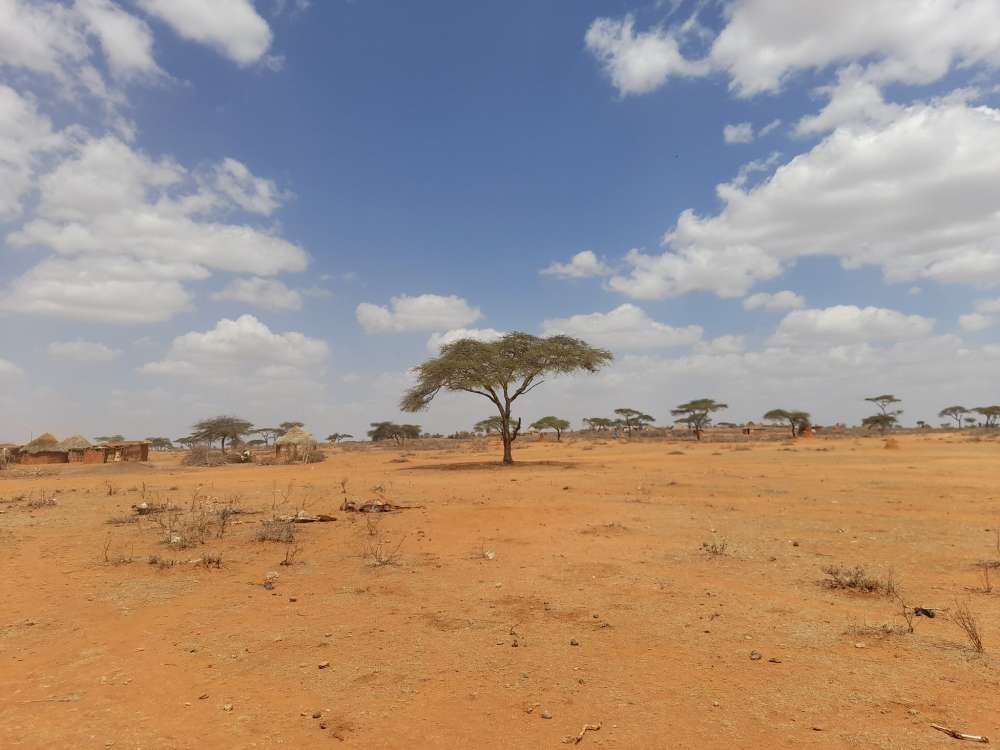
Judgements of urgency allow humanitarians to discriminate in favor of one group over another because their criteria for doing so are the present and future needs arising from a given threat. Urgency also allows humanitarians to act in line with impartiality’s demand for non-discrimination on the basis of identity. But in a context of massive needs and insufficient aid it will still inevitably leave people out.
2) Differential Suffering and Need
The distinction between absolute need and relative need also gives scope for prioritizing between people’s different levels of suffering across the world in the climate emergency. It seems useful to expand the Paris Agreement’s ethical ideas of “differentiated responsibility” and “respective capacity” and apply them to suffering, too.
Working with a criterion of differential suffering in the climate emergency will help humanitarians to apply the traditional concepts of relative and absolute need to an increasingly universal emergency. Differential suffering allows humanitarians to argue that even though people in places like Europe, China or the US are suffering from increasingly difficult climate-induced changes in their life conditions, people in extremely vulnerable parts of Africa or Asia, or worse-affected parts of Europe, China and the US, are suffering differently – because they have less capacity to cope.
For example, when there are heatwaves in London and Lusaka, everyone may suffer to some extent, but not to the same extent. Within London and Lusaka, some groups of people are poorer compared to others around them. This disparity may pose questions of social justice within that country or society. But if these relatively poor people are still able to meet their basic needs, they do not have specifically humanitarian needs. Although they suffer, it is reasonable not to prioritize them because disparity itself does not constitute humanitarian need.
Differential suffering may also lead us to prioritize nature’s needs over human needs sometimes. Humanitarians are rightly investing in nature-based solutions. In particular places, this will see them spending more money on seeding, restoring and protecting natural life rather than human life. Indeed, humanitarians have a long tradition of prioritizing nature through activities like reforestation programs, animal vaccination and protecting water catchments or grazing lands.
Humanitarians can argue for this spend as investments in reducing future human needs. But they can also justify prioritizing nature for its own sake if, in fact, nature is in more urgent distress than the surrounding human population at that point in time. Nature’s needs for life and health count directly in the climate emergency and not only as instruments for meeting human need. The life of trees, plants, animals, rivers, and seas can thus be prioritized not only as part of human life, but also over human life where the latter is not in immediate danger.
3) Present and Future Needs
The long emergency of climate change rightly affects our temporal perspective on urgency itself. As Steinke observes, the temporality of humanitarian action needs to change. If we know that human distress will be most pressing in 10 years’ time, then we are morally bound to see the risk to future lives as urgent now. In other words, the future is part of the emergency of the present.
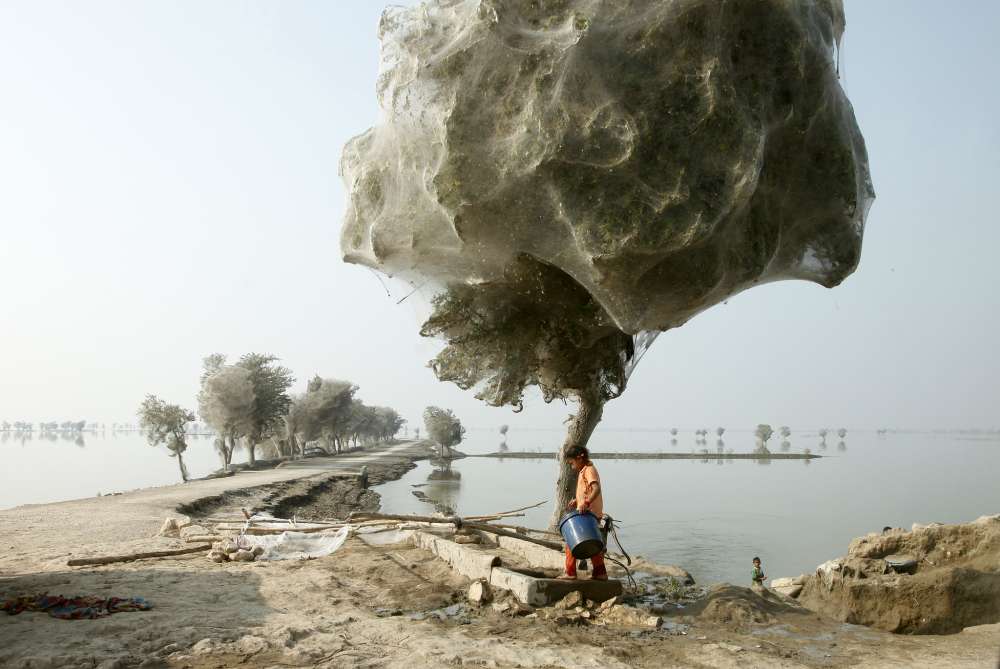
This temporal shift means humanitarians are rightly feeling pressure to prioritize investments in disaster risk reduction, climate change adaptation, anticipatory action, and general resilience-building. In these forward-looking strategies, humanitarian focus is on prioritizing life-saving capability in the future by reducing risks today. In ethical and economic jargon, humanitarians are prioritizing statistical lives in the future over actual lives in the present. For example, when working to prevent future disasters and build tomorrow’s resilience, many humanitarians have to drive past people in urgent distress as they go to plant trees, build water cisterns, adapt housing, or restore mangrove swamps.
In giving priority to future lives, strict impartiality is interpreted with significant elasticity, and possibly even breached. However, this is justified in a long emergency in which we are bound to recognize urgency as extended and intensifying over years. In doing so, we can acknowledge and justify the fast-evolving humanitarian practice of inter-generational aid. In my view, this practice is something we should prioritize and the principle of impartiality needs updating to acknowledge it.
4) Proximity and Social Bonds
Physical proximity is another reasonable justification for prioritization. When an emergency unfolds “on our doorstep” or “in our own backyard,” the need of affected neighbors presses upon us. In being closer, they may be easier to help, and their differential suffering (compared to that of our own demographic) may be morally striking. So, closeness counts in moral reasoning, and it increases our responsibility. So too does distance, which may sometimes diminish our responsibility vis-à-vis people in need, even if we would prefer that it did not.
Social bonds and close relationships also produce special responsibility and greater priority. Attachments to people who are kin of some kind, or bonds between peoples as national allies with common commitments, are authentic grounds for distinct moral claims. The same is true of our fellow citizens in danger far away, which is why we often see governments airlifting their expatriate citizens out of harm’s way in preference to the affected local population. These moral claims are often manifest in shared identities, but the reality is that such social bonds are grounded in relationships, affection and common cause; they are not necessarily based in discrimination, racism or political bias.
It is also important to recognize that states which fund humanitarian aid can have enemies. When resources are scarce, these states are not bound to prioritize the humanitarian needs of an enemy population above the humanitarian needs of their own people. International law does, however, require them to recognize and address the needs of individual members of that same enemy population when they fall within their power, for example, as prisoners of war.
So, geographical nearness and social bonds both infer a special responsibility for governments and for citizens to prioritize alleviating certain suffering, even if they also aim to serve the wider universalist goals of valuing and helping every human life. This is reasonable discrimination, in my view: it takes the form of justifiable prioritization rather than a complete abandonment of impartiality. Indeed, I suggest that the principle of impartiality is itself morally unrealistic in situations when we are bound to prioritize particular people. We are all human, but we also all have our own neighbors and friends. This fact carries distinct obligations and gives solid grounds for prioritization, especially if others are well placed to care for their neighbors and friends who are different from ours.
5) Feasibility
Some humanitarian needs are easier to meet than others. Levels of difficulty have repercussions on the amount of time, money, energy, and goodwill invested in an operation (which then are not invested elsewhere). A low likelihood of humanitarian success in one place compared to a higher likelihood of success in another place should also be taken into account when prioritizing needs. In such cases, there is a distinctly tragic-but-reasonable dimension to prioritization that comes close to triage.
Difficulty assessments may hinge on factors like logistics, the local climate, politics, or overall safety. Significant logistical difficulties may mean it is impossible to help people in time, or very unsafe to try. Or conditions might be so difficult in country X that the average per capita cost of meeting humanitarian needs skyrockets, in effect deprioritizing country Y, where equal needs can then no longer be considered. As climate change makes some places uninhabitable, meaning adaptation is impossible, it makes no sense to continue prioritizing the continuation of human livelihoods there. Instead, investment should focus on enabling people to leave well and start again elsewhere.
Political difficulties are key feasibility factors, too. Access problems are usually political or military in nature and can be deeply impenetrable. Excessive focus on access can mean that gaining access itself becomes regarded as humanitarian success, which should rather be measured by the needs that can be met as a result of that access. Difficulty and access may both become distractions that suck good money into bad prospects and risk tying up valuable resources in unwise expectations.
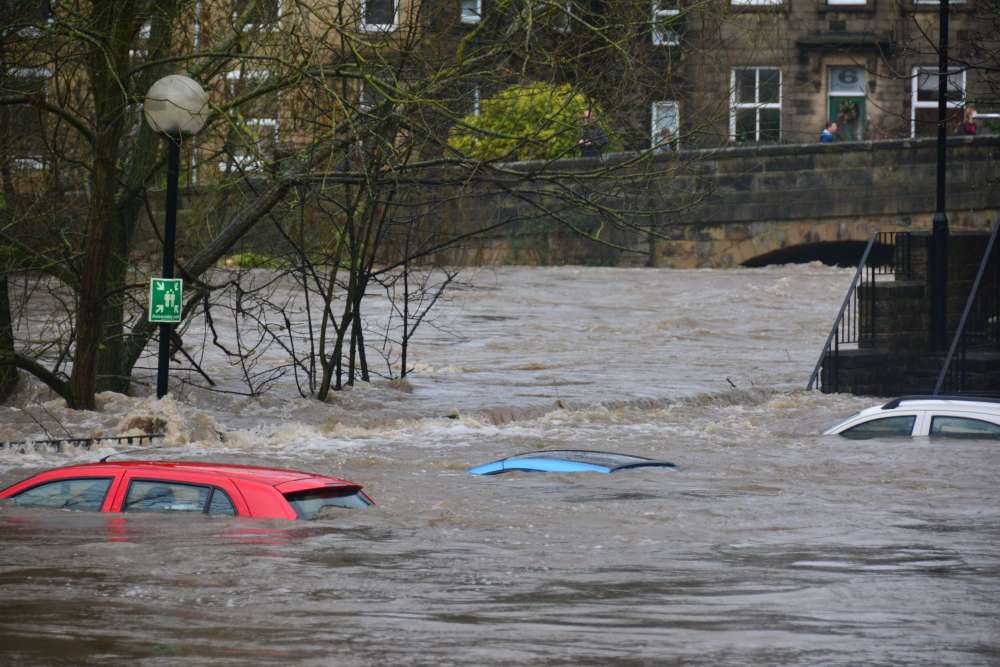
Contributing to the entrenchment of an unjust political regime is another form of political difficulty that can justify deprioritizing certain needs. In my view, for example, the risk that humanitarian aid will stabilize the Taliban’s criminal and misogynistic rule imposes a moral disclaimer on humanitarian agencies, not a moral claim. To support the Taliban directly or indirectly is to normalize its inhumane regime. Much better would be to prioritize the moral claims of humanitarian needs in countries whose governments are not pursuing gender apartheid and other crimes against humanity.
6) Alternative Capacity
The presence of alternative capacity can also influence prioritization. For example, if the government of Kenya has the capacity to meet most of the humanitarian needs of its citizens who are affected by an extreme drought, or if it could quickly find the resources to do so by reallocating parts of its budget without disastrous effect, I propose that the UK government can rightly deprioritize these same needs even though existing social bonds between the two countries might come with a special moral claim that the UK support Kenya.
The potential for alternative capacity also counts as a just reason for deprioritizing some countries. Corrupt and inefficient governments around the world should no longer be able to escape their moral duty to respond to humanitarian need in their own countries by passing them on to the system of Western-funded aid. In these cases, the truth must win out that there could be sufficient and alternative humanitarian capacity in certain vulnerable countries if their leaders did not steal public money, if taxes were properly imposed, and if government ministries were sufficiently resourced. When faced with pressing needs elsewhere, humanitarians can justly walk away from a country whose government could do something to help its citizens but is choosing not to do so.
7) Balancing Public and Private Effort
Striking the right balance between private responsibility and public responsibility is another important way to share responsibility for needs. Not every aspect of, say, health or social need requires public investment; some responses may instead be personal duties. People in need still lead moral lives and face moral choices, and they, too, must prioritize. Their survival is largely up to them, and the vast majority courageously take on this responsibility to save and sustain their lives on a daily basis.
It is, therefore, reasonable for humanitarian policy to prioritize building people’s capacity by addressing systemic needs, like those for better early warning or health services, and then leave it to people themselves to make the most of these public goods. International humanitarians can be tempted to intervene too much and for too long. But their agencies cannot and should not reach into every latrine and every kitchen, or into every community to set up small businesses and governance committees. Humanitarian responsibility must pass from public duty to personal responsibility in almost every situation. Fair prioritization in humanitarian policy must find the right balance between contributing to public goods and spending on individual needs.
Humanitarians know well that one of the best ways to maximize resources is to prioritize investment in multiplier services. These strategic public goods include systems and infrastructure like food markets, water services, health systems, educational facilities, and healthy ecosystems, which allow people to assume agency and increase their personal capability to satisfy their needs on their own initiative. Focusing humanitarian resources on multiplier assets and services is, therefore, a reasonable way to prioritize. If general conditions improve, then people may have more energy and inclination to come together privately without the need for expensive per capita intervention by humanitarian agencies.
Sparking a Conversation on Humanitarian Priorities
In this essay, I have tried to grasp the nettle of humanitarian prioritization by encouraging international relief agencies and their government donors to think about what might constitute fair choices around saving human lives in the climate emergency, a reality that is already pressing upon billions of people.
In particular, having recognized that prioritization is an inevitable scenario, I am encouraging greater recognition of shared responsibilities and a reasonable division of labor between the most powerful states as well as middle powers, international aid agencies, and affected people. I have also outlined seven criteria that humanitarians could draw upon to make decisions and further prioritize – both within and beyond the principle of impartiality.
As always, I realize that what I suggest may prove useful to some, and foolish or even scandalous to others. Prioritization is as difficult as it is unpleasant. However, I hope my considerations help to spark a wider discussion of prioritization in practice – a demand that the climate emergency already is, and will increasingly be, placing on humanitarians.
This essay spins out of Hugo Slim’s research into “What Is Climate Humanitarianism?,” which is funded by Caritas and Red Cross agencies, and a previous paper on humanitarian need written for IMPACT Initiatives.
In the spirit of sparking conversation, let us know your thoughts or feedback (via GPPi) or respond directly to the author.

